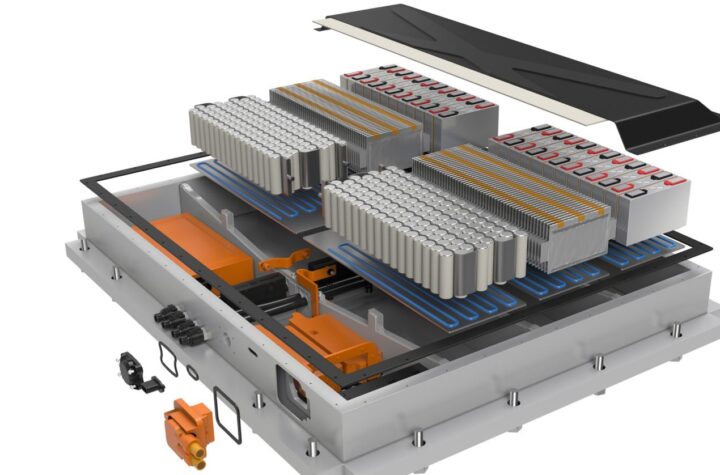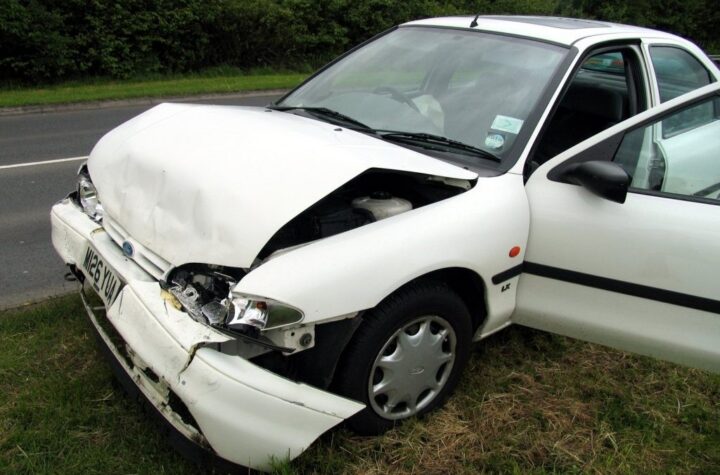
True to its slogan “Driving tomorrow”, this year’s IAA in Frankfurt/Main reconfirmed the show’s leading international platform for the latest developments in the world of mobility.
Among the exhibitors was Magna, a technology company which is helping to define and create the future of mobility. While the company delivers innovative products and systems for today, it says it is also developing advanced technologies for the future. The 2019 Frankfurt International Motor Show was where the company shared its vision for the evolving mobility ecosystem. Magna’s smart mobility seating solutions were on display, as well as its ADAS technologies and material innovations that allow for seamless, fully integrated sensor placement. When the company showcased its latest solutions earlier in the year at CES 2019, a major attraction was its reconfigurable seating, which will be a major factor in future smart mobility solutions. Seat positioning will play an increasingly important role in creating a flexible space where drivers and riders can move cargo, get work done and interact with each other more freely. Magna used rich digital and in-market consumer research in China, Europe and the United States to understand the views of the consumer when it came to their personal experiences with seats.
After observing consumers in their daily lives, Magna says it created a seating platform focused on delivering the ideal user experience. “Magna’s seating innovation is driven by the belief that while the vehicle occupant experience will be very different with the introduction of mobility and autonomy, the functional basics will remain the same: passengers want convenience, flexibility and comfort,” said Mike Bisson, President Magna Seating. “This approach has essentially helped us create seats that adjust to the consumer, instead of having the consumer adjust to seats.” The Magna concept seat ecosystem includes three specific configurations. In the cargo mode the seats slide under the internal platform to provide maximum space. There is flexible hardware to create various cargo options and mobile app interface to preconfigure a cargo mode (min, max, left or right side). Then there is the long road trip mode where there is campfire seating with stadium swivel on power long rails, 4-way headrest sleep support, pixelated vibratory / haptic massage seat for optimal blood flow, in-cabin communication and personal sound zones. In the autonomous ride sharing mode, Magna conceptualized conference seating with stadium swivel, reversible on power long rails. For the app there is an available Seat Signal that indicates which seat is available in a ride sharing vehicle. Three-wide seating, easy to clean trim covers, personal sound zones and object detection complete the package. Magna says it pioneered reconfigurable seating with the gamechanging Stow ‘n Go® Seating and Storage System on Chrysler minivans in 2004. Most recently, Magna brought the fourthgeneration Stow ‘n Go to market on the 2016 Chrysler Pacifica and was first to bring the Pitch Slide EZ Entry™ seat to the North American market on the GMC Acadia. Magna designs seats at six R&D centers and manufactures seats at 50 locations around the globe. This July, Magna announced that it had won new seating business in North America with a global automaker and will supply seat structures from a new manufacturing facility in Lancaster, Ohio. The new, US$60 million facility will be operation early 2020 and is Magna’s first dedicated seat structure plant in the US. It will feature robotic laser and MIG welding capabilities. The seating will be sourced by the automaker for its new plug-in hybrid. At the IAA 2019, Magna also showcased its electric powertrain technologies. The company’s etelligentDRIVE™ solutions continue to be at forefront of future drivetrain technologies. Magna demonstrated how multiple powertrain configurations with scalable electric power for hybrid and electric vehicles are applied to meet the varying consumer demands for efficiency, performance and dynamics. The company also highlighted its autonomous car technologies such as its LiDAR object detection in action on a display screen. This demonstrated how Magna can master the complexity of autonomous driving through modular, scalable configurations for any vehicle architecture and autonomy scale, says the company. Magna has 169,000 employees and 338 manufacturing operations and 89 product development, engineering and sales centers in 28 countries. It has complete vehicle engineering and contract manufacturing expertise, as well as product capabilities which include body, chassis, exterior, seating, powertrain, active driver assistance, electronics, mirrors and lighting, mechatronics and roof systems. Magna also has electronic and software capabilities across many of these areas.
Automotive Industries (AI) asked Günther F. Apfalter, President, Magna Europe and President, Magna Steyr, what main message the company wanted to share at the Magna booth at the IAA 2019. Apfalter: “Welcome to Mobility” was Magna´s key theme at the IAA. Magna Steyr used the show to demonstrate how one of the leading global automotive suppliers is defining and creating the future of mobility, by showcasing its latest innovations and technology highlights.
AI: What contract engineering solutions were highlighted? Apfalter: We demonstrated our competence in complete vehicle manufacturing and engineering by using a display where 3D models served as buttons for capability videos that demonstrated our expertise in various areas, from a styling sketch to a manufactured vehicle. For example, we demonstrated how our OEM-neutral development system is based on a validated virtual development process or how we use smart factory for production planning.
AI: How have Magna’s manufacturing services evolved to keep abreast of changing demands of automotive companies? Apfalter: Magna stands ready for electrification and autonomy as we assemble the building blocks of future mobility. We accomplish this by developing core competencies in-house at an accelerated pace and partnering with some of the best minds including startups, entrepreneurs, universities and technical specialists for technological advancements
AI: Do newer entrants in the field of automotive contract manufacturing such as Tesla and others, challenge Magna’s position in the sector? Apfalter: We need to be competitive in terms of innovation, technology, market speed. It will be exciting to see how this will develop. I’m sure that, in a few years, it will not be only traditional automakers producing cars – and traditional automakers will offer mobility services. We are technologically involved in this topic, especially in engineering. We built an electric car for Jaguar Land Rover. It takes years to develop that kind of expertise.
AI: How have your engineering services from systems and modules to complete vehicle engineering evolved over the past few years? Apfalter: Our extensive range of services covers product groups engineering services – from systems and modules to complete vehicle engineering – and full vehicle manufacturing, where we offer world-class flexible solutions from niche to volume production. Magna is the ideal automotive contract manufacturer worldwide to produce vehicles with conventional, hybrid and electric powertrains.
AI: Similarly, your fuel systems have changed taking into account new materials technologies – please give us an idea of how this process evolved? Apfalter: Our success comes from being able to draw on decades of experience in the automotive industry and the latest in production technologies. Our ongoing innovation in processes and materials enable us to translate our competitive edge into real customer benefits.
AI: What are some of the challenges facing battery systems and what solutions does Magna offer? Apfalter: The battery systems technology is very complex and we at Magna are not active in that area.
AI: How do you view the downturn of major automotive markets (such as India, whose auto industry is facing the worst slump in decades) and how do you see Magna evolving to take these challenges into stride? Apfalter: Of course, we have noticed the downturn in the entire automotive industry. As a global operating company Magna is prepared to adapt to all economic and political changes. Our 2019 outlook is largely unchanged despite our expectation of continued challenging automotive market conditions.












More Stories
Automotive Industries (AI) Newsletter April 2025
GlobalLogic Pioneering Software-Defined Vehicles, AI Innovation, and Sustainable Solutions for the Future of Automotive Mobility
Cybord TCI – The Future of Manufacturing Integrity